Burning Fields.
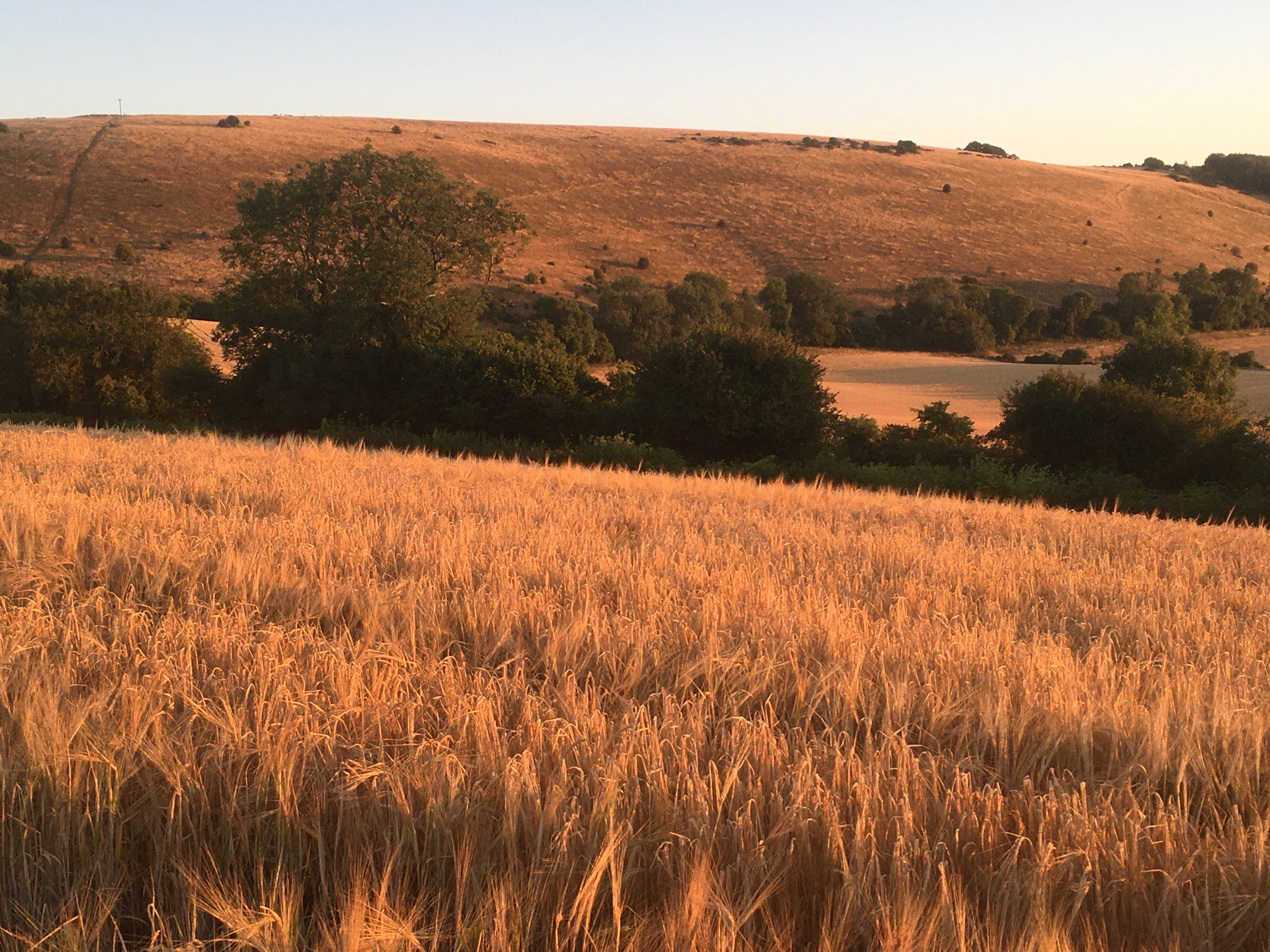
Though the unprecedented heat has eased, the frightening intensity of it remains. Coldharbour Farm and its grain silos shimmered like a mirage in the fan-oven heat. Much of the harvest there was done before the schools broke up, and woodpigeons panted on the sticky tarmac, where even the water leaks had dried up. As the temperature – according to my garden gate thermometer – rose to 39C, the road surface from Hungerford to Kintbury melted to an oily slush, the car tyres making a slicking puddling sound, as if the tide was coming in to close a causeway. The barley fields rippled like white gold shot silk; as gold as I’ve ever seen them.
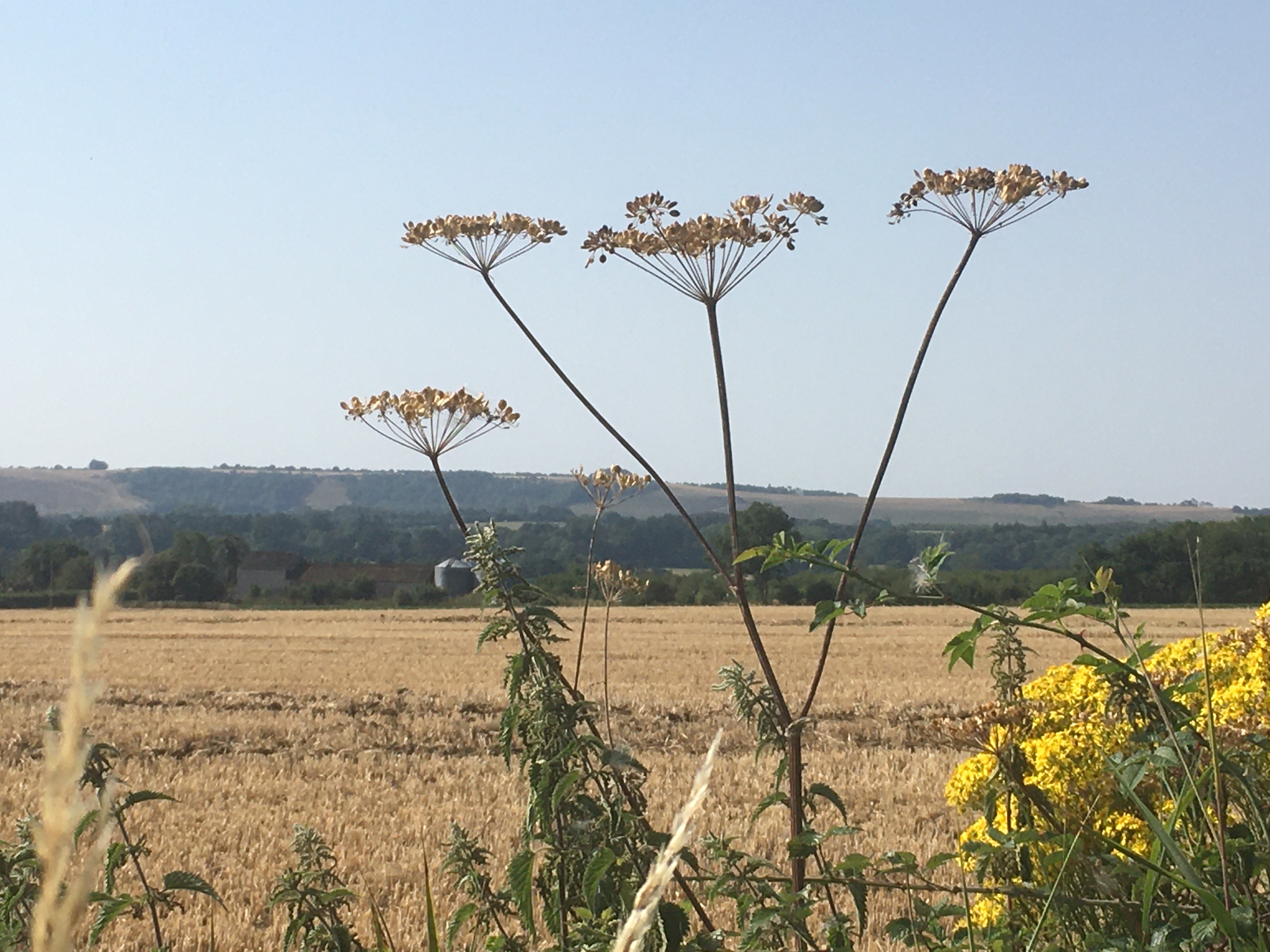
Birds in the garden were more confiding, desperate for water and food in the drought. The hard, green, unripe apples made do for the inaccessibility of worms far below the baked earth.
It was difficult to sleep at night – and not just because of the heat. The brittle grass and barley crackled against the gate and the partly-felled woods had so little green in them, they smelt like kindling. The horses whinnied. Leaning out of the window, I saw a single broadsword of lightning plunge silently over the hill. I checked the weather app on my phone, but instead saw something I’d not seen before: smoke. As a ‘weather’? We’ve had field, farm and straw fires here before (and for ages past). I thought of the news. The combine was working in a distant field, and on Twitter, fires were reported on Salisbury Plain.
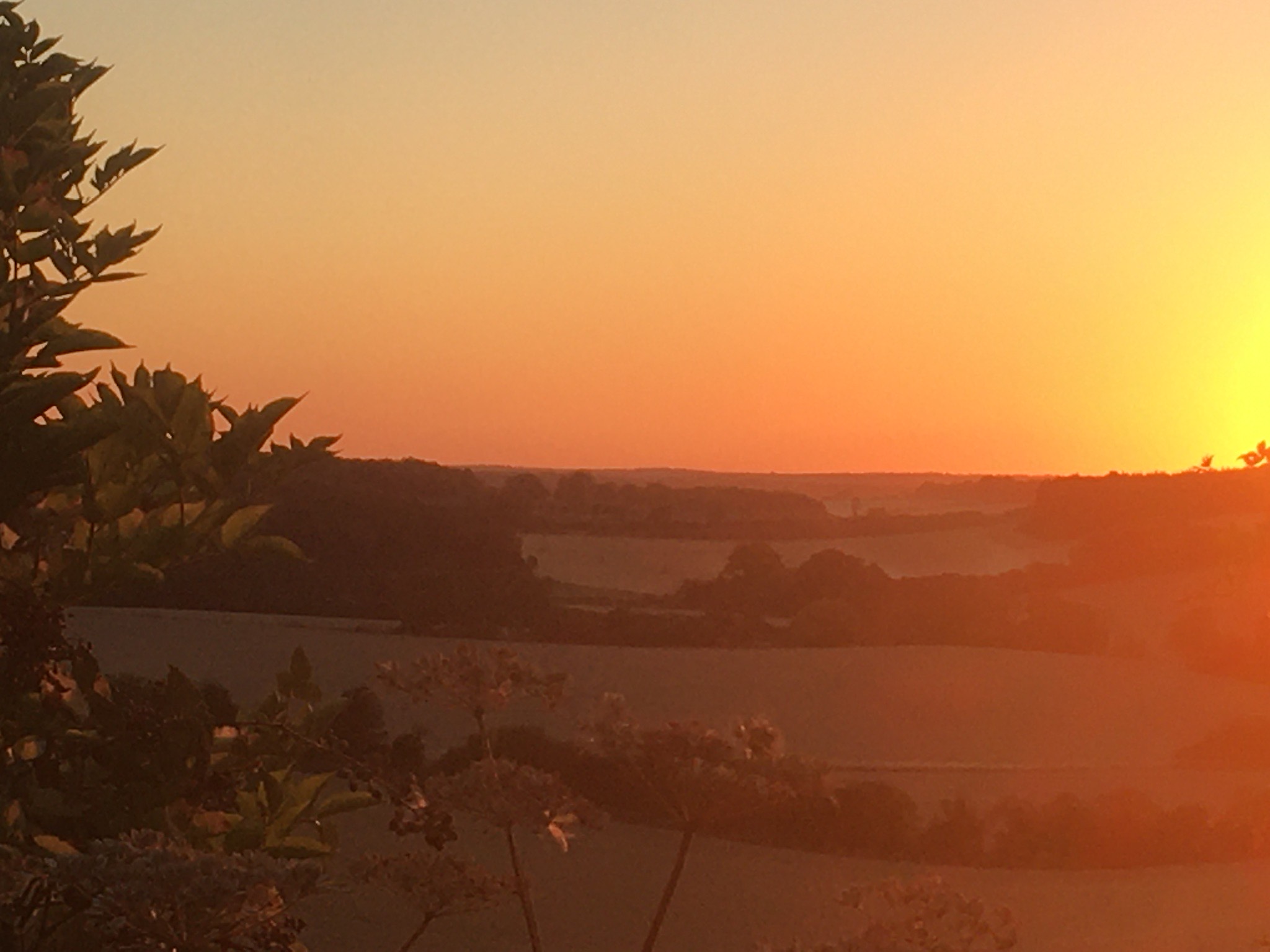
Ever a fireman’s daughter, I slept fitfully and woke in the night to a rising wind, banging doors through the house and lifting the curtains into rearing horses over our bed. I glimpsed strange lights over the wood, but couldn’t be sure – Chinese lanterns? Flares or embers? A late barbecue on the hill? My imagination?

The following day a combine sparked a flint-fire just a few fields away – it was not the only one – an added, heightened risk this year. The smell of burning fields took me back to my childhood and early twenties and in my head, the loop of a much-loved song by Kate Bush; the lyrics ‘The smell of burning fields, will now mean you and here … they’re setting fire to the cornfields, as you’re taking me home’ were haunted and intensified by the keening female voices of The Trio Bulgarka and uileannn pipes. From the back garden, the big hill, tawny-gold in the copper light, gave off a big energy, and I walked out to meet it. There was music from somewhere, vans on the hill, voices drifting so that full sentences could be heard, sheep bleats that sounded like people calling – and people calling. A drone then; a helicopter, a missing young man.
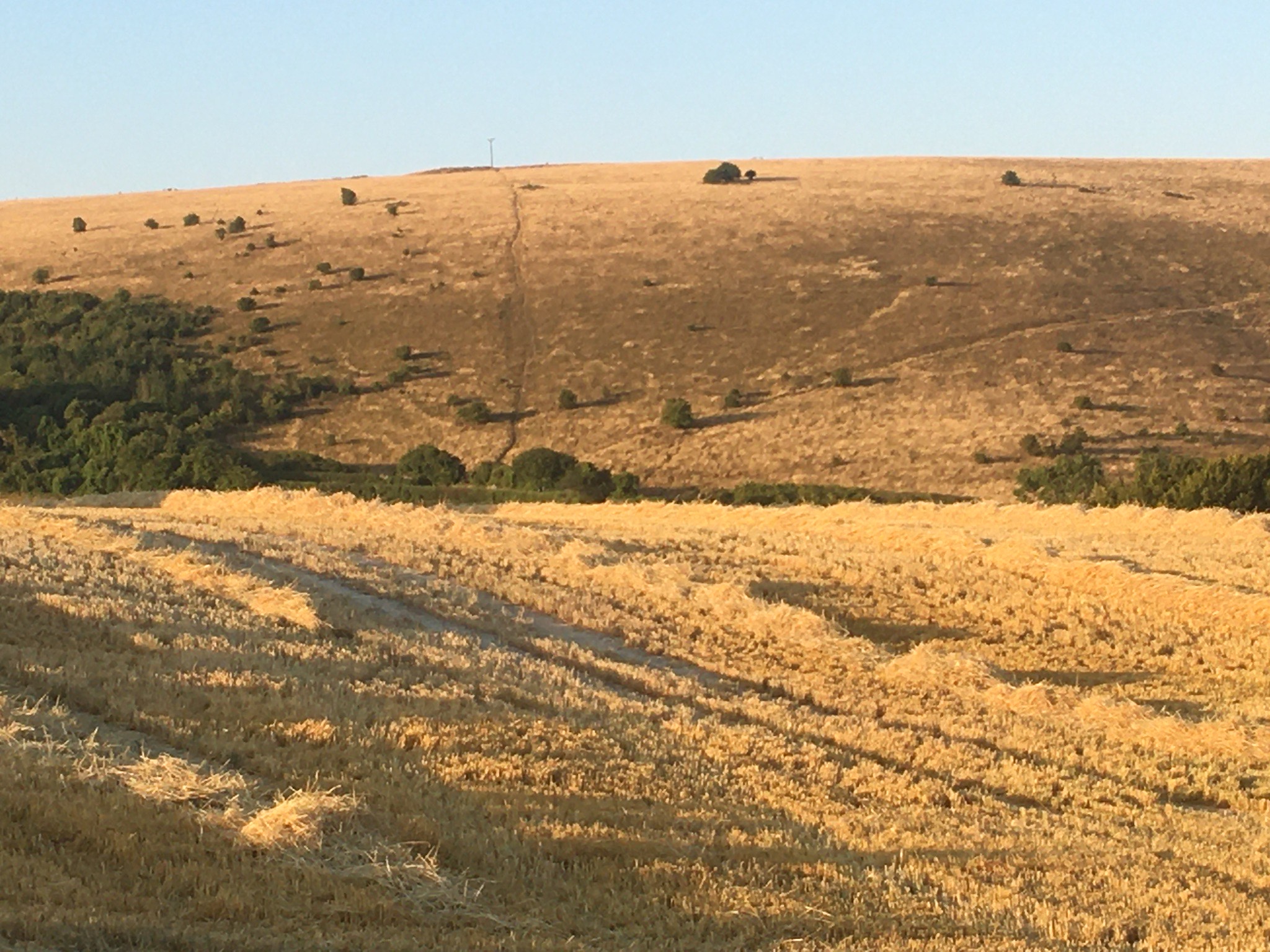
The setting sun’s rays illuminated the still-smoking fields as if through stained glass. An elegiac quality. I thought of the young man, his family, the vulnerability and peril of young adulthood. And hoped.
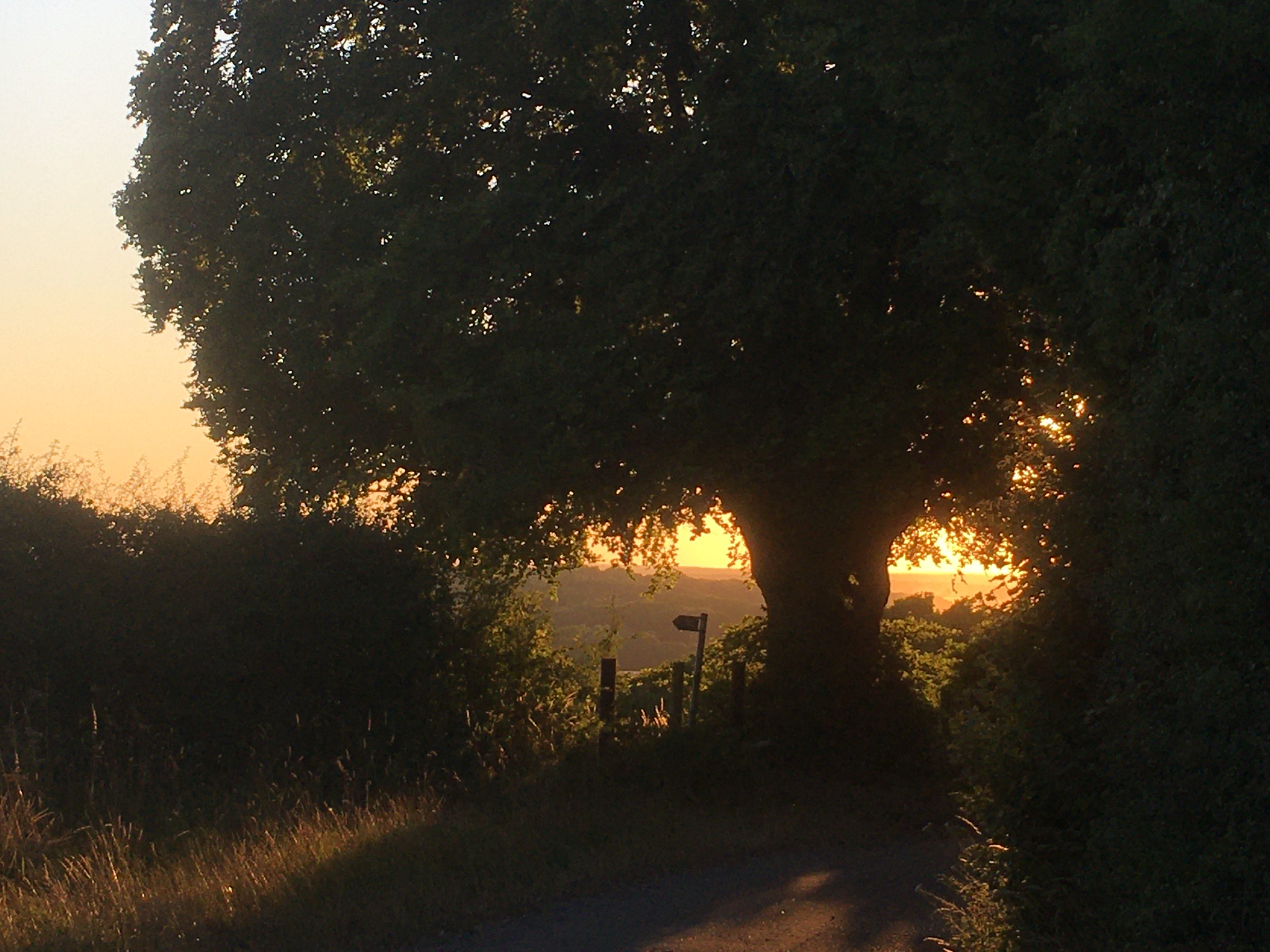
Below the hill, all is nearly safely gathered in. Harvested lines and fields spread like a technical drawing in sepia light; a tawny geometry that this year included borders of ‘cultivated’ stubble, as precautionary fire breaks. Our Home Field was the last to be done. The village pond dried up and the moorhens came into the garden.
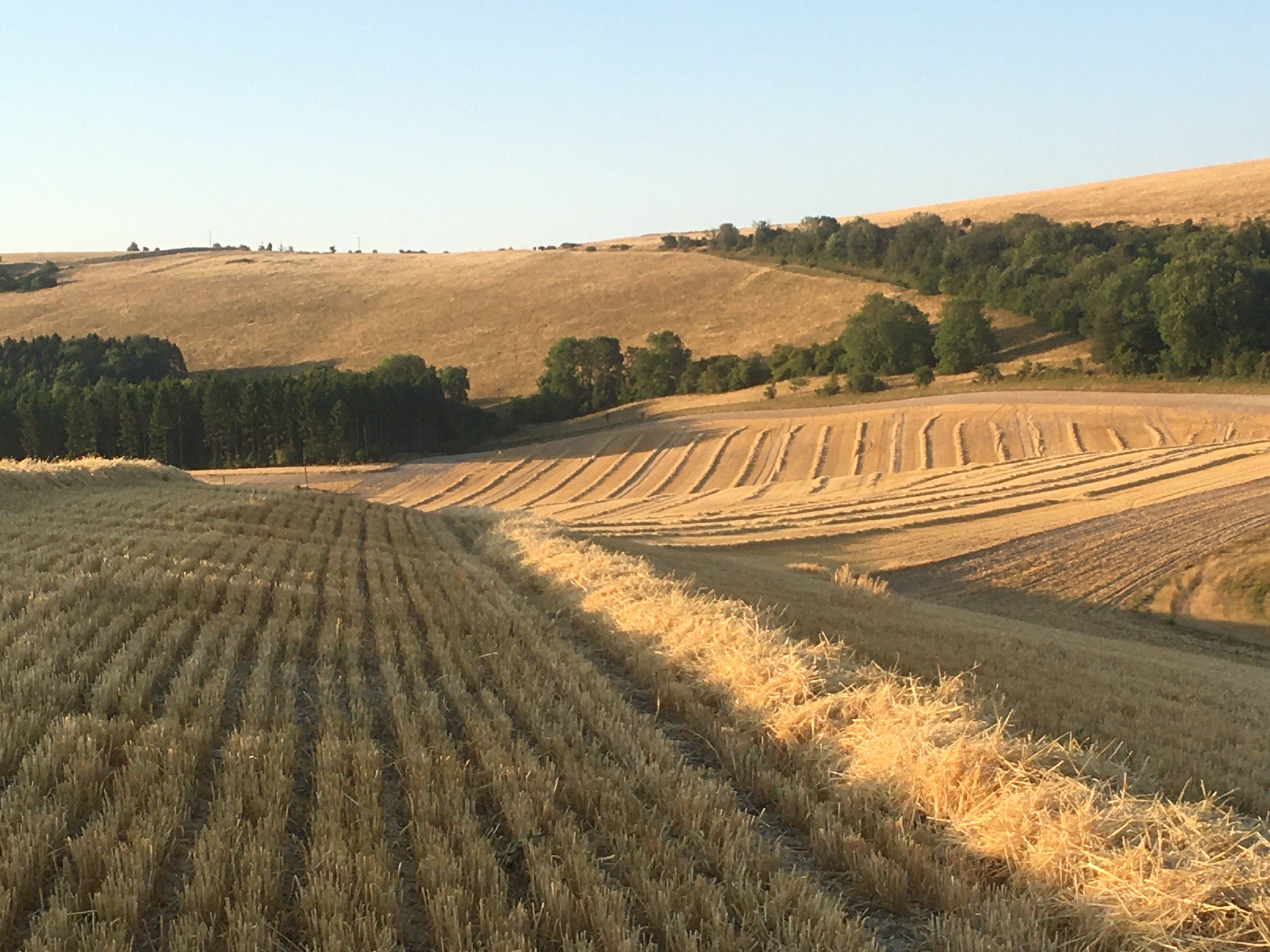
It is difficult not to think we’ve run out of time to halt the climate and wildlife crisis. Hard, in the early hours, not to think of that tide inexorably rising. Not to be frustrated and angry with those that have more power and agency to effect change quickly and emphatically – and do not.
Some of my earliest memories are of my firefighter Dad, returning from long shifts in that hot summer of 1976, dousing wildfires in the New Forest. Of strikes. How the smell of smoke was strangely comforting. How safe he made me feel.
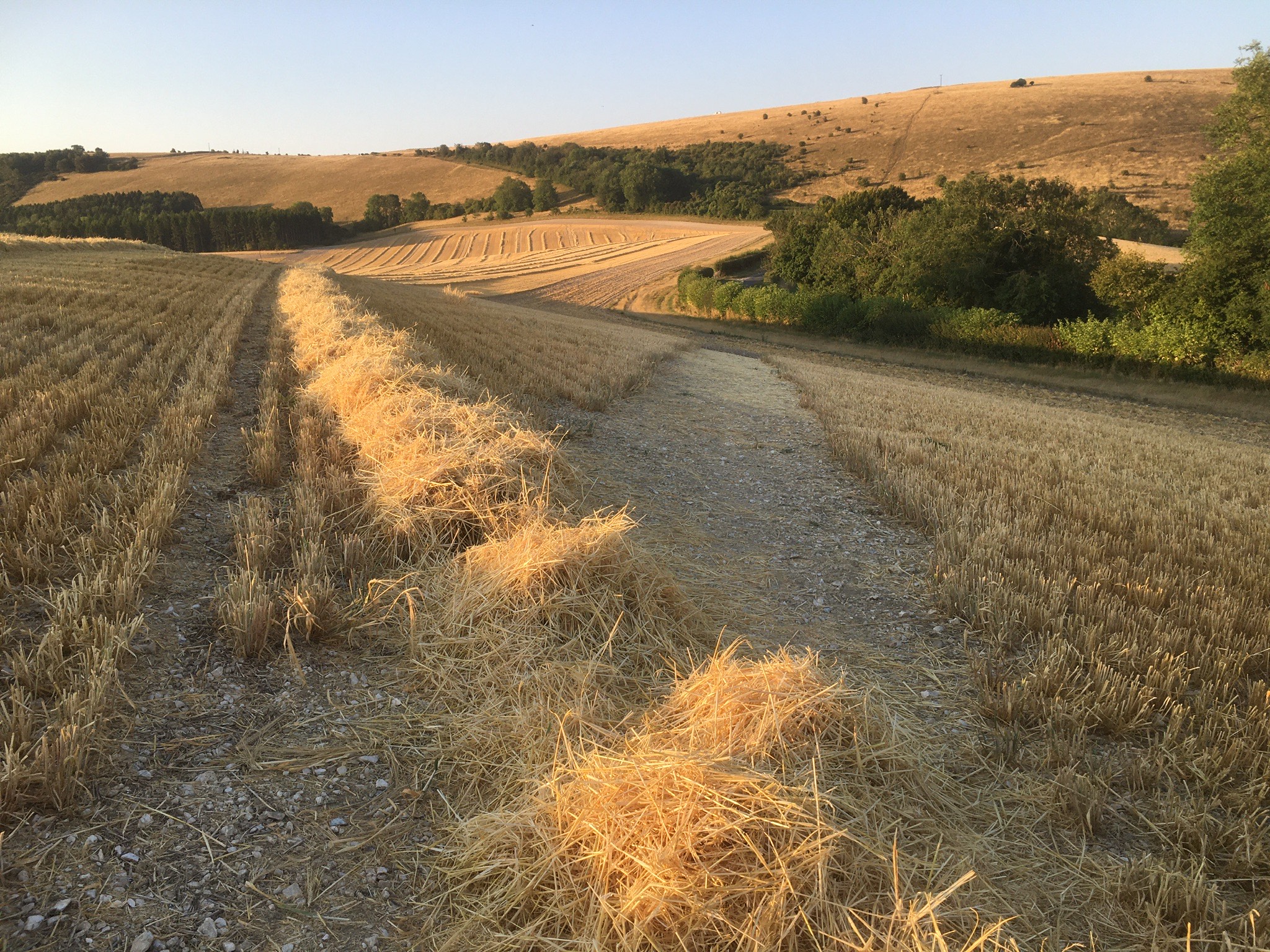
Leave a comment